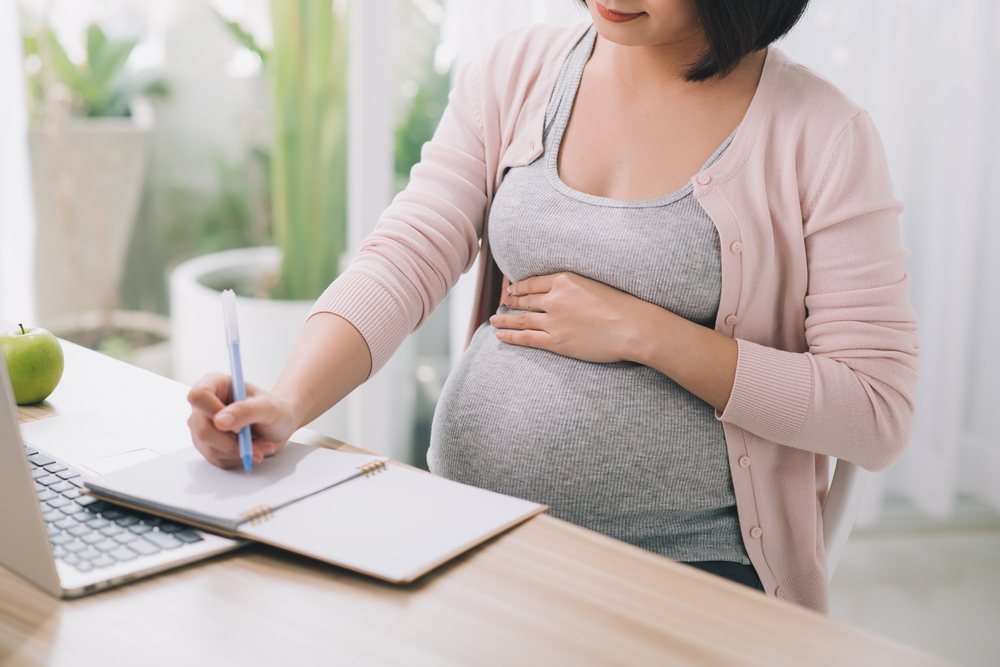Parenting
Tips To Avail A Paid Pregnancy Leave In The United Kingdom
Congratulations on your upcoming bundle of joy! You must have a plethora of inquiries regarding parental leave – such as its commencement, the duration allocated for pregnancy or paternity leave, and methods for informing your supervisor about your forthcoming baby. Additionally, you are probably interested in discerning details about your maternity compensation. Given the numerous factors to consider, it is natural to feel swamped. We have curated this convenient manual to furnish you with all the essential details on the inception of pregnancy leave and the protocol for notifying your employer of your pregnancy.
We are here to assist you in identifying precisely what you are entitled to so that you can manage your financial resources and plan your maternity pay in advance. You may also endeavor to negotiate for improved maternity compensation, and if you are self-employed, there are viable alternatives available. While you might not qualify for Statutory Maternity Pay, you can claim a Maternity Allowance if you are self-employed.
If you have recently discovered your pregnancy, you will likely seek preliminary information on key aspects like the definition of Statutory Pregnancy Leave, the extent of maternity leave existing in the UK, and the crucial query – how and when should I disclose my pregnancy to my superior? Here, we offer imperative insights.
What entails Legal Pregnancy Leave?
Legal Pregnancy Leave in the UK guarantees you a full year off to care for your newborn, irrespective of your duration of employment. However, meeting specific requirements is necessary, and maternity pay is only applicable for 39 weeks out of the 52-week maternity leave period you are entitled to. This is due to the distinction between maternity leave and maternity pay.
Do I meet the criteria for Legal Pregnancy Leave?
Not everyone automatically qualifies for Legal Pregnancy Leave. According to guidance from Citizens Advice, you need to be an official employee to meet the criteria for maternity leave. However, being self-employed does not automatically disqualify you if your contractual agreement designates you as such. Situations where you may not be considered an employee include roles in agencies or positions with irregular or uncertain work patterns. Separate regulations apply for Police or Armed Forces personnel. It is advisable to consult your employer for clarity.
What is the Duration of Parental Leave in the UK?
To prepare for the welcoming of your newborn, it is vital to ascertain the period you can take off work prior to and post childbirth. Parental leave in the UK spans 52 weeks. According to Gov.uk, while the 52-week leave is at your discretion, by law you are mandated to take 2 weeks of Mandatory Parental Leave after childbirth, or 4 weeks if you are employed in a manufacturing setting.
Per Moneyhelper.or.uk, the 52-week parental leave consists of two segments:
- OrdinaryMaternal Absence – The initial 26 weeks (or half a year) off. During this period, you retain the entitlement to return to the same role you held before commencing the Maternal Absence.
- Supplementary Maternal Absence – The concluding 26 weeks (or half a year) off. It is distinct in that it impacts the privileges you possess upon resuming work. You have the right to reclaim your former position if it remains vacant; however, if not, an equivalent role with identical remuneration and terms must be provided.
It’s essential to mention here, for your tranquility, that you are shielded from redundancy for 18 months starting from your anticipated childbirth date. This also applies if you opt for 6 weeks of uninterrupted Shared Parental Absence, which we will elaborate on below.
What is the appropriate time and method to inform my employer of my pregnancy?
Disclosing your pregnancy news is a significant matter! You may even feel apprehensive about revealing your pending parenthood at work. Fret not, as you are not obligated to announce it right away. Knowing the mandated time to inform your employer about your pregnancy can empower you. Strategizing how to disclose this information also provides you with ample time to handle any queries and form a clearer expectation.
Concerns about others’ responses, predominantly in the professional setting, are common for expectant mothers. Apart from worries pertaining to first-trimester miscarriage risks and coping with this loss while managing professional duties, you might also fear differential treatment or job jeopardy. Legally, you are not compelled to divulge your pregnancy to your employer, but doing so safeguards your entitlements, mitigates discrimination, and ensures that your employer is legally required to safeguard both your and your child’s well-being.
It is unlawful to treat pregnant women disparately in the workplace or terminate your employment solely due to your upcoming motherhood. Notifying your employer of your pregnancy is advisable as it unlocks benefits and privileges that will support you not only professionally but also domestically. Nevertheless, to access your entitled rights and benefits, you must notify your employer of your pregnancy at least 15 weeks before your due date, ensuring that you and your partner are confident and prepared.
When is it permissible to commence maternity leave?
For those eagerly anticipating the initiation of their maternity leave in advance, the earliest moment to commence is 11 weeks before your due date, unless the baby arrives prematurely. You have the option to work until your due date if you prefer, and if you have not availed any time off preceding the baby’s birth, your official maternity leave will commence from the day they are born.
When is the optimal time to begin maternity leave?
Preparation for childbirth is a frenzied period with a multitude of tasks to accomplish before your due date, from assembling infant paraphernalia to packing your hospital bag. Individuals typically opt to start their leave a week or so before.their anticipated delivery time to give themselves ample opportunity to complete all necessary tasks, preferably around 38 or 39 weeks into their pregnancy. This timeframe also ensures sufficient preparation to prevent unexpected labor incidents at the workplace, ensuring a well-planned and secure arrival for the newborn.
Is it possible to commence maternity leave if the baby arrives prematurely?
Great news – in the event of a premature birth or if the baby arrives before the expected due date, your maternity leave will begin promptly. Your leave officially starts the day following the birth for early arrivals. Therefore, it is essential for you, your partner, or a family member to promptly inform your employer about the situation.
If you require time off work within the 4 weeks leading up to your due date, and the absence is due to pregnancy-related issues, your maternity leave will automatically commence. Any leave taken before this period may need to be classified as sick leave in most cases. In the instance of an extended sick leave, the amount of paid sick leave you are eligible for is subject to the discretion of your employer based on company policies.
Can maternity leave commence after the due date?
No, maternity leave must initiate no later than the day of the child’s birth.
When does paternity leave begin in the UK?
Statutory Paternity Leave must be taken within 8 weeks (56 days) post-birth and cannot commence prenatally. However, if needed for flexibility, you may be able to negotiate with your employer to utilize some of your annual leave before starting your paternity leave.
What does shared parental leave involve?
Shared parental leave enables eligible partners to divide up to 50 weeks of leave throughout the first year after their child’s birth, as detailed on Gov.uk. This includes a maximum of 37 weeks of paid leave collectively. Opting for Shared Parental Leave may require sacrificing some of your maternity leave and pay, but it significantly expands possibilities for arranging time off, granting greater flexibility to bond with your new arrival and each other.
Possibilities include:
- Utilizing all your leave consecutively
- Segmenting it into intervals interspersed with working periods
- Distributing the leave duration between you and your partner
- or even synchronizing time off to spend together as a family.
Shared parental leave allows parents to maintain a connection with their jobs while relishing the early stages of parenthood simultaneously if preferred. To avail of these benefits, it is necessary to provide the employer with a minimum of 8 weeks’ notice.

















